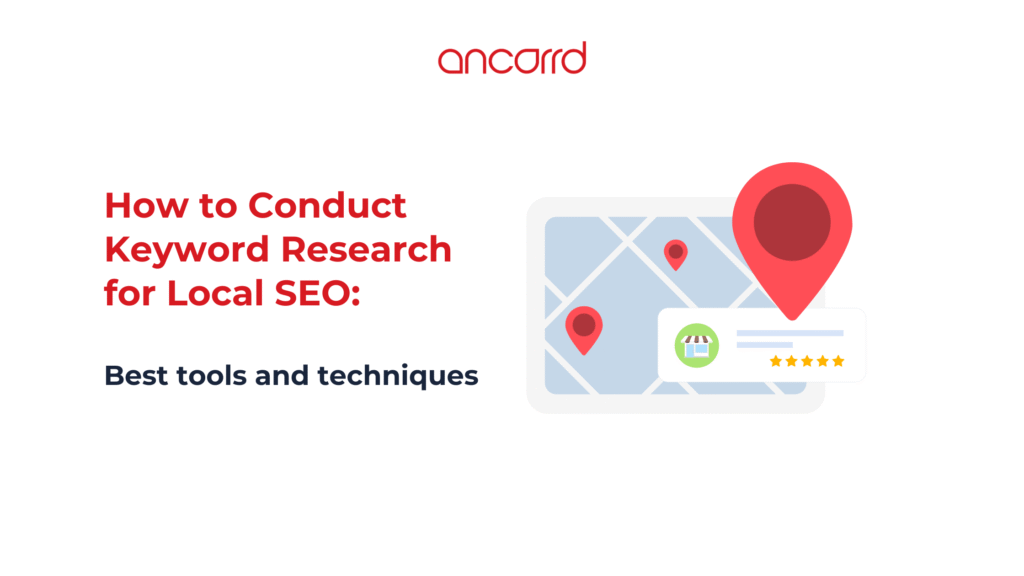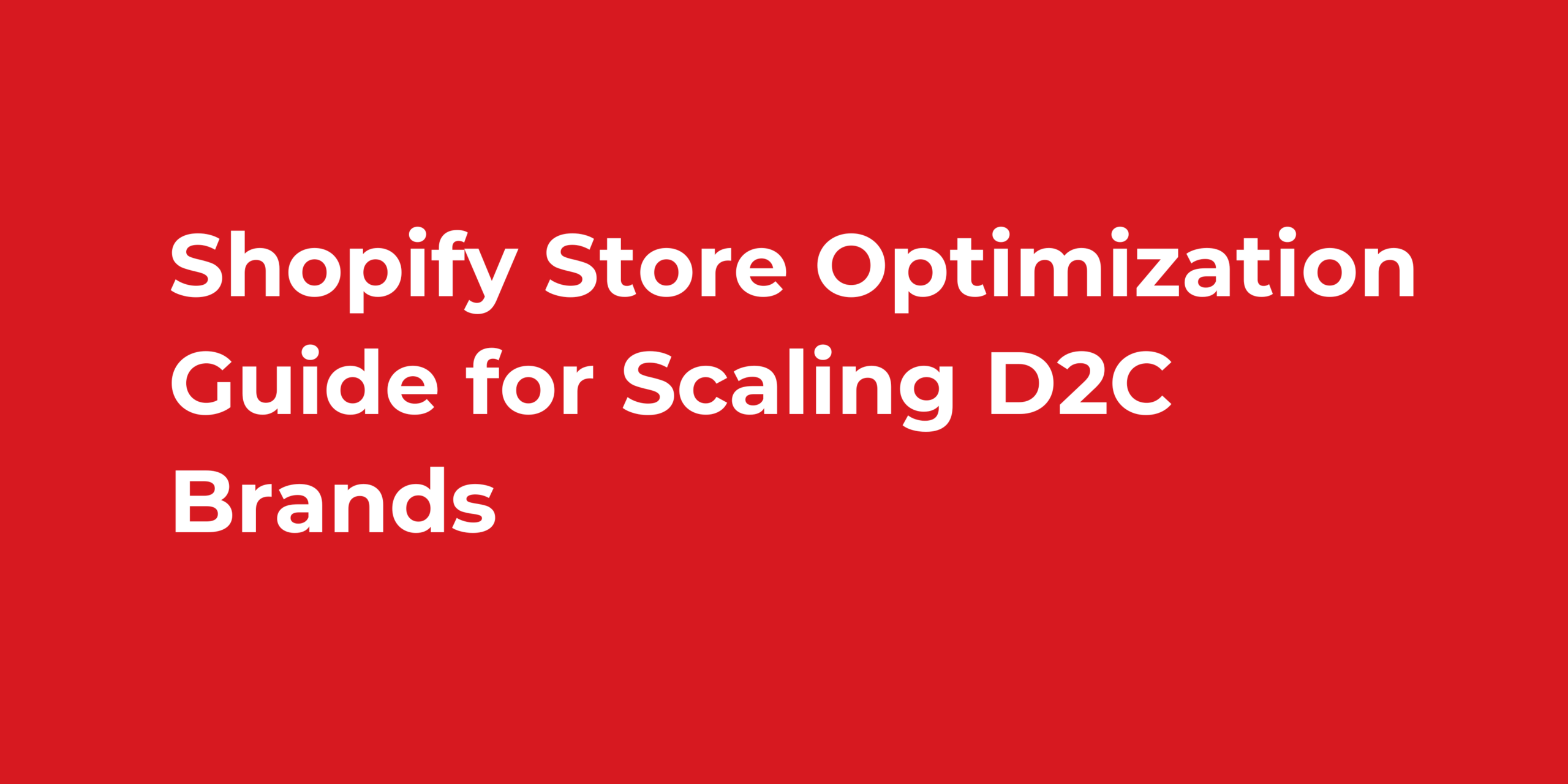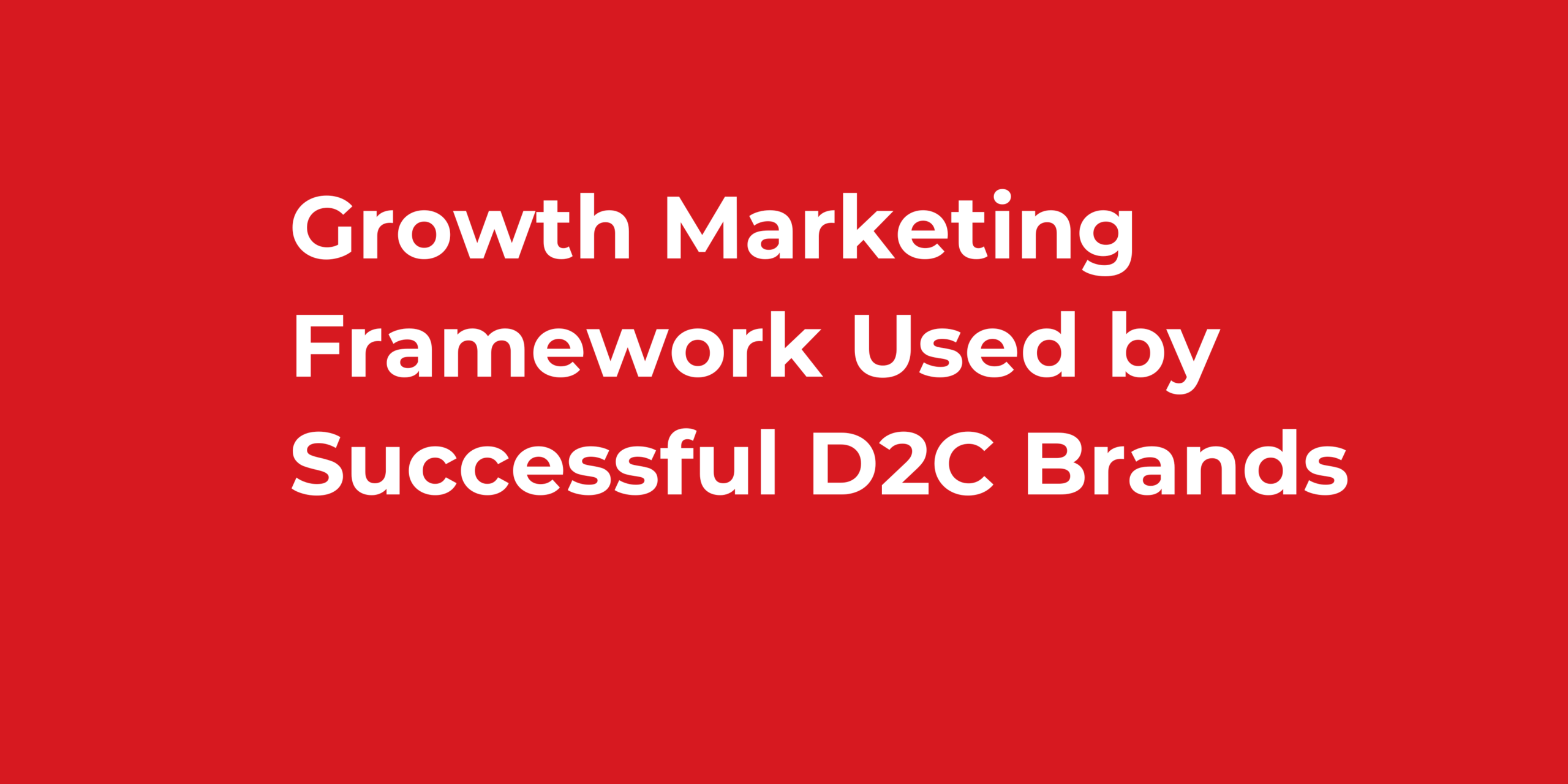Keyword research for local SEO is a significant ranking factor for Google. Do you know that, according to Backlinko, Google uses 200 factors in its algorithm for ranking websites? You must thoroughly understand the importance of keyword research in SEO to rank your e-commerce website at the top of the Google page.

What are keywords and their benefits?
Keywords are the words or phrases users type when searching for information via a search engine. Keywords are essential in SEO since they help a search engine determine your website’s content and match it with relevant search queries.
When your site appears higher in the SERPs for your targeted keywords, your potential clients are more likely to spot it.
For 2024 SEO trends, read this detailed blog.

Benefits of effective keyword research
- Improved traffic: Irrelevant keywords are not designed to attract visitors to your website. Relevant keywords are going to help find more traffic to your website.
- Better user experience: Your website can attract interested visitors if it ranks for the targeted keywords.
- Increasing conversion rates: If you use your keywords correctly, visitors will likely turn into customers.
- Better comprehension of your audience: Through keyword research, you may get to know what your target audience wants, and then you may act upon it accordingly
- Competitive advantage: You provide a competitive advantage by tracking the keywords your competitors do not target.
Put simply, keyword research is vital in getting your website noticed and making it more effective in achieving business goals.
What are some of the best keyword research tools for e-commerce businesses?
Effective keyword research is essential for every e-commerce business, as it drives organic traffic, improves search engine rankings, and boosts conversions.
Here are some of the best tools you can use to stimulate the growth of your e-commerce business.
1- Google keyword planner
Google Keyword Planner is a free, trustworthy tool. It was mainly created for Google designers and advertisers but has proven to be a precious resource for organic keyword research. The information comes from the world’s most used search engine, Google.
Using it, you can find keyword ideas based on products or services, the average monthly search volume for each keyword, competition levels (high, medium, low), and suggested bid prices for PPC campaigns.
It also offers ways to filter results according to location, language, and network, allowing your e-commerce business to adapt to geographical or demographic markets and dictate its keyword strategy.
2- Ahrefs
For e-commerce businesses, Ahrefs provides detailed keyword metrics, such as search volume, keyword difficulty, potential CTR, and keyword trends over time through Keywords Explorer.
Ahrefs will also indicate how many top-ranked pages exist for a keyword and, more importantly, the number of backlinks so e-commerce businesses can determine their position in terms of competition.
Though this would seem exciting, one of the unique features of Content Gap is that it can identify keywords where competitors rank and where they don’t. This can allow your e-commerce business to grow, as you can quickly analyze your audience and competitors in one place.

3- SEMrush
The company offers a range of options, including the Keyword Magic Tool, which provides lists of keyword variations, question-based keywords, and keyword clusters to aid targeted SEO content.

It also gives keyword intent—informational, transactional, navigational, and commercial —making it much easier for e-commerce businesses to align content with users’ intent.

Spy on your Competitor
SEMrush has a Domain Analysis tool that lets businesses spy on their competitors’ keyword strategies, see which keywords bring in the most website traffic, and get information about their paid advertising keywords.





It also monitors keyword positions, the trends in the keyword, and even global and local search volumes.
4- UberSuggest
Is your e-commerce business in its early stages? If so, it would be best to use Ubersuggest. This keyword research tool is very budget-friendly, as its prices are affordable compared to other brands.
Ubersuggest is another cheap tool developed by Neil Patel. It is relatively easy for beginners and has recently gained much popularity. It is a helpful keyword research tool for smaller e-commerce businesses looking for an accessible yet powerful tool.
Ubersuggest gives keyword suggestions, content ideas, and a keyword overview that shows metrics like search volume, SEO difficulty, and paid difficulty. It offers a free version that businesses on a tight budget can use.




Keyword research techniques
You need to fasten your seatbelt and speed up your e-commerce business growth by learning the best keyword research techniques. Below here are the best keyword research practices that you can use to boost your keyword game.
Do you know that SERPs’ first five organic results account for 69.1% of all clicks? (Up Inc.) so, if you want your e-commerce business to get this 69.1% of clicks, follow the essential steps below:
1- Start your Brainstorming
Brainstorming is often the first step in keyword research, especially when coming up with a list of potential keywords based on what you know about your products, services, or target audience. This technique involves thinking of what words, phrases, and phrases your potential customers might look for when they search for your offerings.
For instance, if you are an e-commerce company dealing with organic skincare products, you might brainstorm about the following keywords: “organic face cream,” “natural skincare,” or “chemical-free moisturizers.”
2- Competitor Analysis
You can analyze the keywords your competitors use and rank for with competitor analysis. This technique gives you an idea of what already works in the market and will provide ideas for gaps in your keyword strategy.
Example:
For instance, consider a fitness apparel e-commerce website. Suppose a competitor such as Gymshark. Tools like Ahrefs or SEMrush will help you find the keywords for which Gymshark is ranking, including “gym leggings,” “seamless workout clothes,” or “high-waisted compression shorts.”
3- Question-based keyword research
According to Moz, roughly 8% of searches are phrased as questions. As the name suggests, question-based keyword research focuses on finding questions that your target audience has related to your products or industry. These keywords are often high-searched in searches because the users want the answers to their questions.
Example:
For example, for a pet supply shop, you would look for questions such as “What is the best dog food for allergies?” or “How to housebreak a puppy?” Tools such as AnswerThePublic, Quora, or even the People Also Ask section in Google are fantastic for finding those questions.
4- Related Seach Terms
According to Statista, 88.2% of all search queries in the US contain 3 or fewer words. Keywords on Google at the bottom of the SERP in the related searches can be found below. Sometimes, these keywords are less competitive, giving better insight into how people search for similar products or services within your niche.
Example:
If I enter “vegan protein powder,” then related searches could include “best vegan protein powder for weight loss,” “soy-free vegan protein powder,” or “organic plant-based protein powder.”
5- Keyword research and analysis for local SEO
For your e-commerce business, keyword research and analysis depend on several factors. Some of these are described below:
- Keywords Volume: It is the number of searches for a keyword. The volume-driving more high-volume keywords have the tendency to, but in the case of longer-tail keywords, which have reasonable volume, it drives highly targeted visitors.

- Keyword Difficulty measures the difficulty of ranking for a keyword. The ideal methodology for targeting e-commerce businesses is that keywords should lie in the low-to-moderate difficulty spectrum for better chances of ranking.
- Customer intent: Having an idea of what the customer needs, whether information or a purchase, sets the tone for using keywords that align with customer intent in the various stages of the buying process.
Keyword Optimization
Following are the tips for optimizing your keywords:
1- Keyword placement
Primary keywords should be included in main content areas such as the title, meta description, headers (H1, H2), and the beginning of your written content. Thus, search engines and visitors will quickly realize what your page is talking about.
2- Keyword density
Over 29% of keywords with over 10K+ monthly searches consist of 3+ words (Ahrefs)
Maintain the keyword density at 1-2%. Keyword stuffing will result in search engine penalties. Use keywords organically, and do not coerce input.
3- Keyword variation
Sometimes, you use synonyms or similar phrases to avoid repetition. That way, your content may capture more search queries and be more readable without killing the SEO.
4- Keyword targeting
Target-specific, intent-driven keywords that people ask according to your target audience. Use long-tail keywords to target more niche search queries and attract targeted visitors.
Conclusion
Thorough keyword research for local SEO is the foundation for a successful SEO strategy for your e-commerce business. By knowing keyword volume, difficulty, user intent, and competitiveness, businesses can pinpoint the terms that will drive their traffic and attract the right audience—those most likely to convert into paying customers.
Subscribe to our weekly newsletter for crispy SEO, CRO, and trending marketing strategies that generate revenue for our clients!
FAQs
-
How do you start a keyword research?
For every e-commerce business, effective keyword research is essential for driving organic traffic, improving search engine rankings, and boosting conversions. Here are some of the best tools you can use to stimulate the growth of your e-commerce business.
-
How do I write keywords in Google search?
Primary keywords should be included in main content areas such as the title, meta description, headers (H1, H2), and the beginning of your written content. Thus, search engines and visitors will quickly realize what your page is talking about.
-
How can I use Google keywords for free?
Google Keyword Planner is a free, trustworthy tool. It was mainly created for Google designers and advertisers but has proven to be a precious resource for organic keyword research. The information comes from the world’s most used search engine, Google.
-
How do you get keywords for SEO?
For every e-commerce business, effective keyword research is essential for driving organic traffic, improving search engine rankings, and boosting conversions. Here are some of the best tools you can use to stimulate the growth of your e-commerce business.








